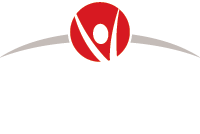The Victorian Government is striving to become the Education State, which will position Victoria as a global centre of excellence in learning and development. Developing world-leading teaching and leadership to improve student outcomes is a critical part of this vision.
Evidence from around the world demonstrates that teaching quality and school leadership are essential to improving student learning, and teaching effectiveness is the most critical in-school driver to improve outcomes. Best practice professional learning ensures schools design and implement a guaranteed curriculum, continuously assess learning, refine pedagogy and practice and evaluate their impact on learning.
The Department of Education and Training (DET) has developed a PLC model for Victorian government schools which JSA has been successful in applying to be part of. The model sets out an effective, school improvement-focused approach to professional learning at the school level and mechanisms for embedding this in school culture and practice sustainably, and with measureable impact.
Through a comprehensive program of professional learning and suite of implementation supports, the Victorian PLC initiative will support JSA to build effective PLCs. Together with the Principal Class Team, four teacher PLC Instructional Leaders lead teams effectively and prepare to collaboratively focus on the core work of improving instruction and student outcomes.


